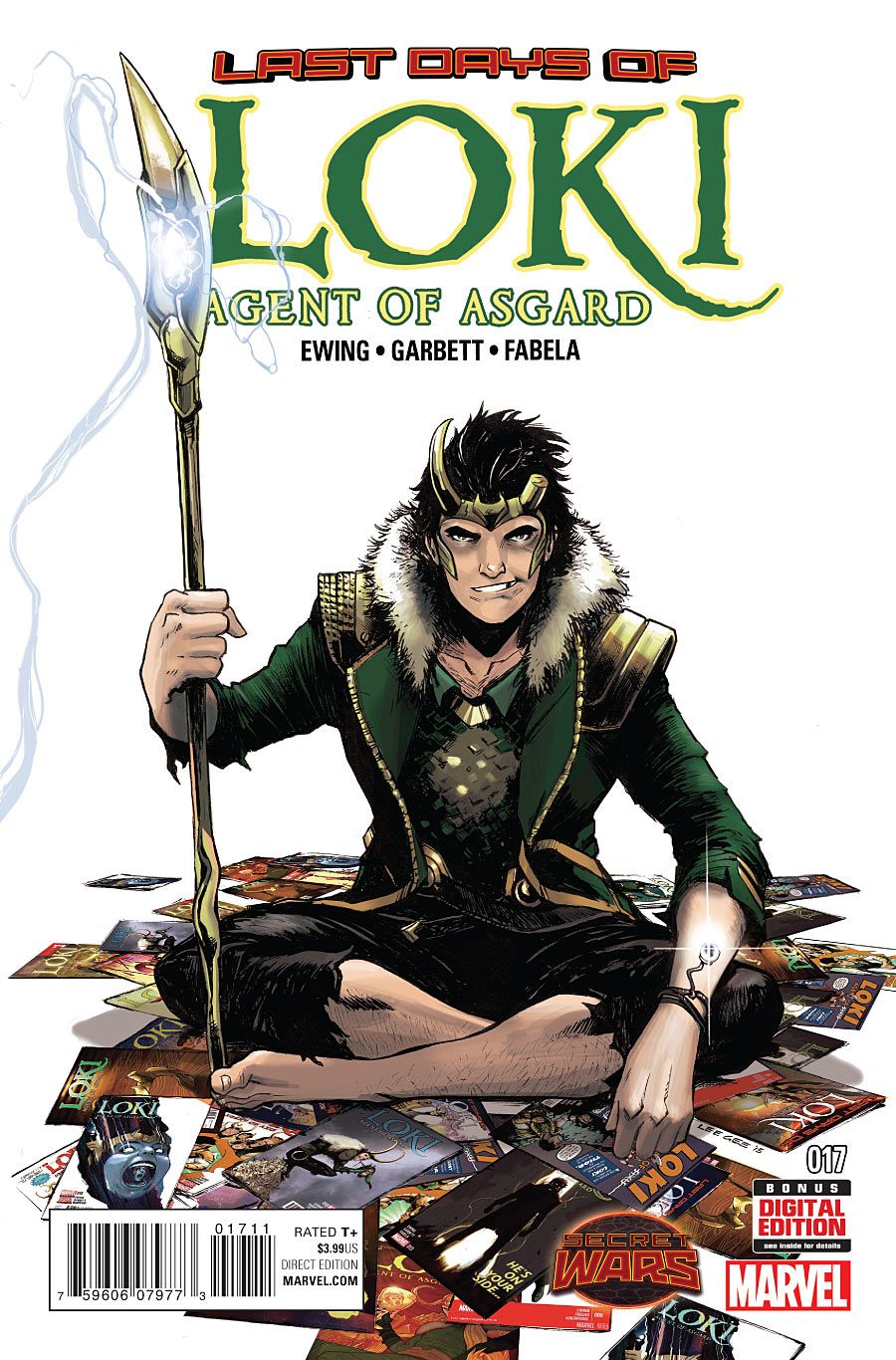"Loki: Agent of Asgard" comes to its immensely satisfying, just-clever-enough conclusion in issue #17. As they've done throughout the run, Al Ewing and Lee Garbett pull freely and ingeniously from the wealth of material that's come before their series, and they manage to make even the most winking, meta elements feel meaningful. Though I'll be sorry to see "Agent of Asgard" go, I'm glad that a series so concerned with shifting, decisive endings got to present its own cathartic "Last Days" this way.
Issue #17 finds Loki and Verity in the nothing-space that remains after the world ends, confronting Those Who Sit Above in Shadow. Lee Garbett and Antonio Fabela command the formidable white space on the page, giving the characters presence and weight without ever really conceding to strict rules of physics. The perspective and planes shift from page to page, and it's clear they're having some fun with their new ungrounded playground.
Fabela is particularly smart in coloring Those Who Sit Above in Shadow. When they're angry, they grow darker and more defined, as if their rage makes them material, while -- when they're sitting back -- they fade to a grey much ghostlier than Verity's. As a result, when they scuttle off in terror, the vacuum they leave behind feels both startling and entirely coherent. In addition, letterer Clayton Cowles drops their black speech balloons, presented without directional tails, in unexpected corners and places. It makes it look even more like Those voices are coming from all directions, rather than specifically from their mouths.
Much of the plot involves wonderfully metaphorical-philosophical flimflam that could easily feel too precious in another context or another writer's hands. With Loki delivering lines like "Maybe some stories are so good...so powerful...that the universe believes them" and consoling nested versions of himself, "Agent of Asgard" #17 really goes for the big, theoretical questions and mad, no-explainers-offered metaphysics. However, Ewing has made it clear throughout the run that Loki is a character for whom the literary is literal; questions of story, truth and how those both get made are life-determining. There's really no better series to play unapologetically with these ideas and, as a result, the emotional payoff is just as satisfying as the "A-ha!" (I could also write a whole essay about the effective use of wonderful Verity Willis, who has some of the most believable, honest reactions of any mere mortal in the Marvel Universe. I hope we get to see more of her soon.)
The other strength of the issue (and of the series as a whole) is how the creative team integrates and cherry-picks Loki's long, convoluted past. Indeed, the whole premise of issue #17 pulls from issue #1's definition of magic: "telling a story to the universe so utterly, cosmically perfect that for a single, shining moment...the world believes." There are dozens of other call-outs, from Loki's "Would you know more?" taunting like an Edda seeress to the MCU-looking scepter. In one sense, these are fun Easter eggs, but that feels a little cheap for how they actually work; Loki is remaking himself from his past pieces, and so the representations of those pasts on the page is also important to the plot.
In conclusion, "Loki: Agent of Asgard" #17 is an ideal series ending that stays true to its own arc while leaving plenty of room for the next creators to play. "Agent of Asgard" managed to dramatically change a character's status quo not by throwing out all the difficult continuity that came before, but by building on those stories to produce a better arc. When people ask what the appeal of long continuity is, I'll point them to this series.

